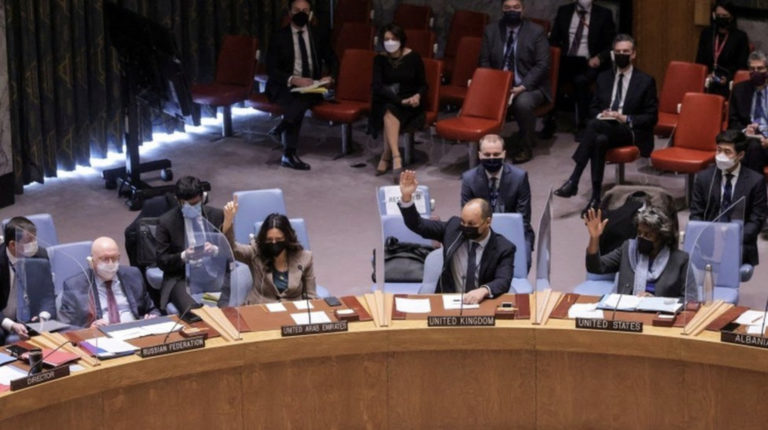Russian and Ukrainian negotiators agreed as of Jan. 26 to a permanent ceasefire following the deployment of around 100,000 troops at the Russia-Ukraine border.
In the announcement of the ceasefire, Dmitry Kozak, Moscow’s chief negotiator, referenced the Minsk agreement – a treaty that halted a similar border conflict in 2014. “We agreed that regardless of different discrepancies of the Minsk agreements that exist between Ukraine and the Donetsk and Luhansk regions, the truce in Donbas must be observed unconditionally,” Kozak said.
Russia’s central demand is that Ukraine not be admitted to the North Atlantic Treaty Organization (NATO).
Ukrainian negotiator Andriy Yermak said all parties favored a ceasefire and that Ukraine was willing to do whatever possible to reduce tensions at the border.
The announcement came as part of the “Normandy Format,” a series of meetings between representatives of Ukraine, Russia, Germany, and France that has been occurring since 2014. Yermak cited the continuance of Normandy Format as a “very positive signal.”
“The work continues, and I can tell you that Ukraine, as usual, is ready to negotiate, to meet 24-7,” Yermak said. “Because for us, for Ukrainian President Volodymyr Zelensky, for the entire team, the goal of stopping the war, of ending the war and returning our territories — and today that this also includes easing the tensions — the de-escalation around the Ukrainian border, is the priority.”
Both Kozak and Yermak said negotiations would continue in Berlin at an unspecified time in February.
Meanwhile, Russia’s deployment at the border has seen significant pushback from European nations and the United States. The United States presented Russian officials with a written response to the deployment on Jan. 26 in an attempt to deter a potential invasion. The response was delivered to the Russian Ministry of Foreign Affairs by U.S. Ambassador to Russia John Sullivan.
“The document we’ve delivered includes concerns of the United States and our allies and partners about Russia’s actions that undermine security, a principled and pragmatic evaluation of the concerns that Russia has raised, and our own proposals for areas where we may be able to find common ground,” U.S. Secretary of State Antony Blinken explained in the announcement of the response.
Blinken refrained from giving specifics on the proposals but maintained that NATO upholds an “open-door policy,” implying that Ukraine would be granted admittance to NATO if it so desired. “There is no change. There will be no change,” Blinken said.
On Jan. 24, U.S. Secretary of Defense Lloyd Austin issued a “prepare to deploy” order to as many as 8,500 troops at the request of President Joe Biden. The order was informed by months of surveillance and intelligence regarding Russia-Ukraine relations, with Russia’s military presence steadily increasing at the border throughout the latter half of Sep. 2021.



